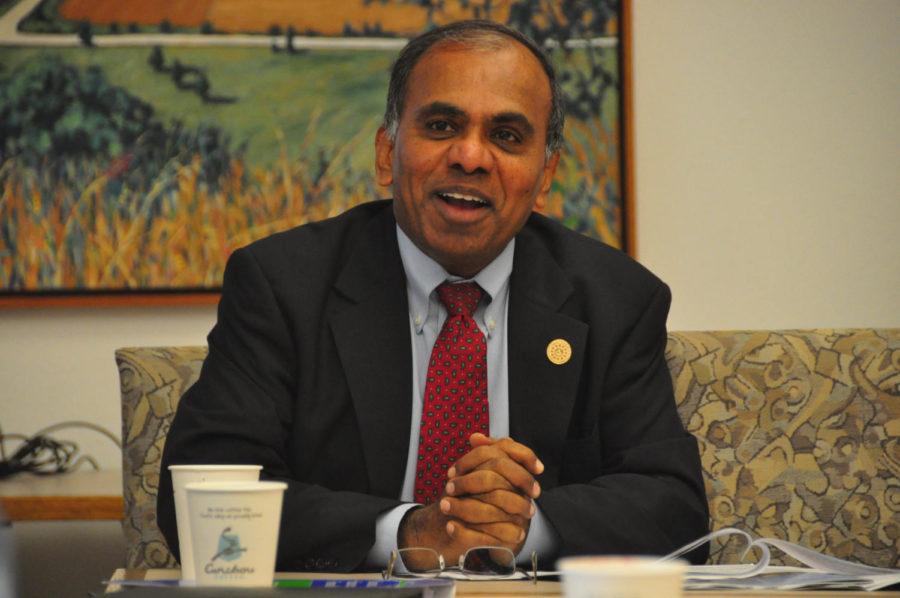NSF programs receive attention for educational efforts
Photo: Tom Fraser/Iowa State Daily
Subra Suresh, director of the National Science Foundation, speaks about what his position entails Thursday in Beardshear. Suresh was on campus to recieve a distinguished alumni award.
April 14, 2011
The National Science Foundation was founded in 1950 after Vannevar Bush, MIT professor of electrical engineering, wrote to then-President Harry S. Truman requesting the government do everything possible to support research at universities around the country.
“The report — “Science Dialogist Frontier” — he proposed was an evolution at the time,” said Subra Suresh, director of the NSF.
Suresh visited Iowa State on Thursday to meet with industry representatives and leaders in education. Suresh will be giving the inaugural Vlasta Klima Balloun Lecture at 11 a.m. Friday. At 1:30 p.m., he will be receiving the Distinguished Alumni Award from the university.
Two activities the NSF supports are Research Experience for Undergraduates, a program that allows students to go work with professors in their labs, and Advanced Technological Education, a two-year program for junior colleges to help people gain a technical education.
“Currently there are 273 active NSF awards at Iowa State University, totaling about $128 million,” Suresh said.
A few of the largest programs on campus are two Industry University Cooperatives Research Centers and one Engineering Research Center for bio renewal.
The NSF is the only federal agency that supports all branches of science and engineering.
“Another thing that is unique about us is that unlike most of the federal agencies, we don’t use the federal money to do research in-house,” Suresh said. “So whatever money we receive, we give it to the community and don’t use it internally.”
Last year NSF supported 290,000 people in the United States and 2,100 institutions, including universities, small businesses, K-12 educational institutions and others with grants and awards.
“I think training the minds to think critically is important,” Suresh said. “Science works like that because enquiry, investigation and curiosity is very critical even in day-to-day life.”

















